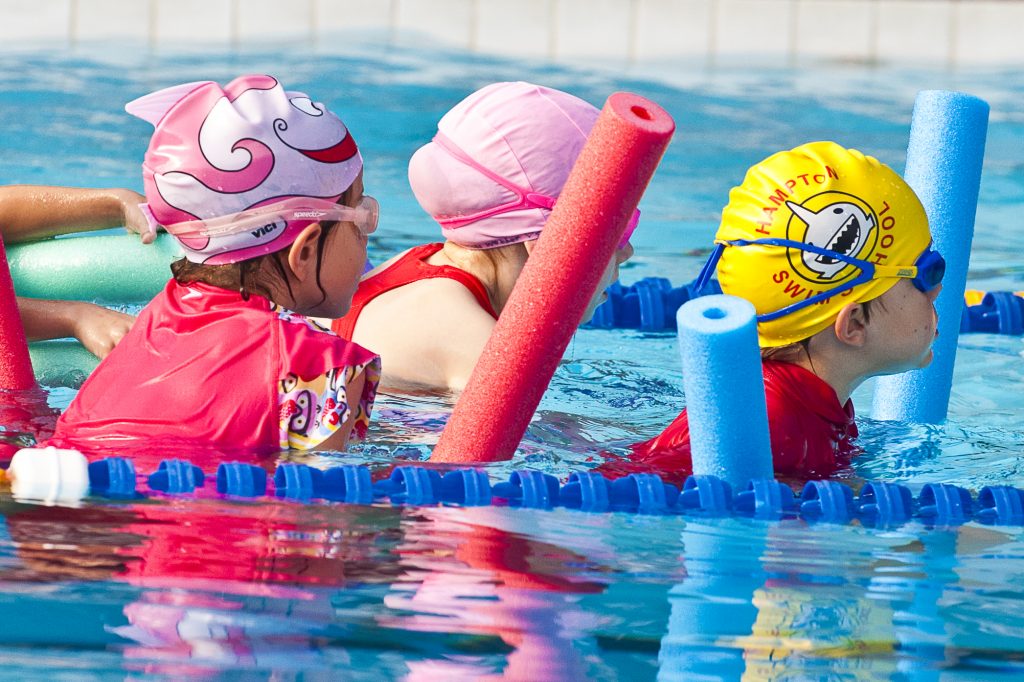Social Development and Swimming
The physical benefits for children of swimming at all levels, from birth through to competitive swimming, are numerous and well known.
Less well known perhaps, is that swimming serves as a wonderful aid to the development of the social skills and behaviours of the child. Infant, toddler and pre-school swim classes provide the child with an early introduction to learning to follow instructions, and to the concepts of sharing, turn-taking and structured learning.
Swim classes also promote social interaction between participants and, through structured play during which the child learns appropriate behaviours (both right and wrong) through listening to instructions and watching others, they provide a vehicle for nurturing and enhance the social and cognitive development of the child.

At the primary school age level, the social skills acquired through early swim classes are able to be refined and further developed. Children who become team-mates in a mini or junior swimming squad are able to enjoy a group environment that fosters the development of responsibility, cooperation and teamwork, and that builds strong friendships.
Swimming has been also found to improve concentration and organisation and to aid in decreasing anxiety – the implication of which is that swimming can help develop a well-rounded, confident and happy child and, by association that it aids in improving the child’s performance at school.
Despite being regarded as an individual sport, swimming at the competitive level (whether racing at a local swim club or competing at state or national standard), continues to afford a young swimmer with opportunities to develop their social skills.
Competitive swimmers tend to be less likely to be aggressive or bully others as the sport of swimming fosters a spirit of sportsmanship while setting and striving to attain goals that can only be reached through hard work and dedication.
The positive social attributes nurtured by an involvement in swimming reduce the likelihood of a child swimmer of high-school age being requiring discipline or acquiring anti-social behaviours such as under-age drinking, smoking or using illegal substances.
With the products of a 21st century lifestyle such as mobile phones and the Internet reducing the amount of face-to-face communication time between individuals, the value of sports like swimming, which allow the child plenty of opportunities to develop their social skills (which in turn assist their learning, confidence and self-esteem) may never have held such importance.
For more information about the classes or to contact us.
